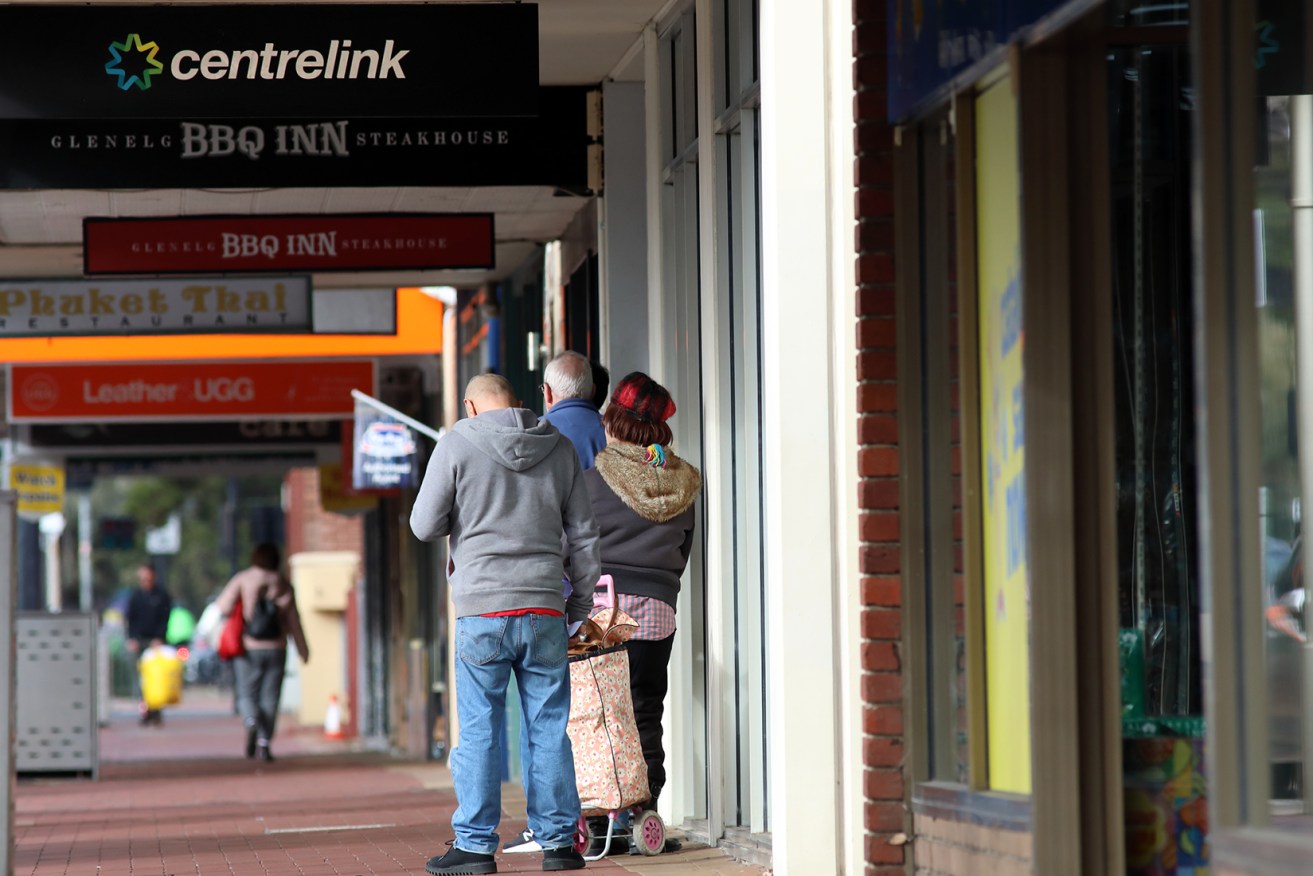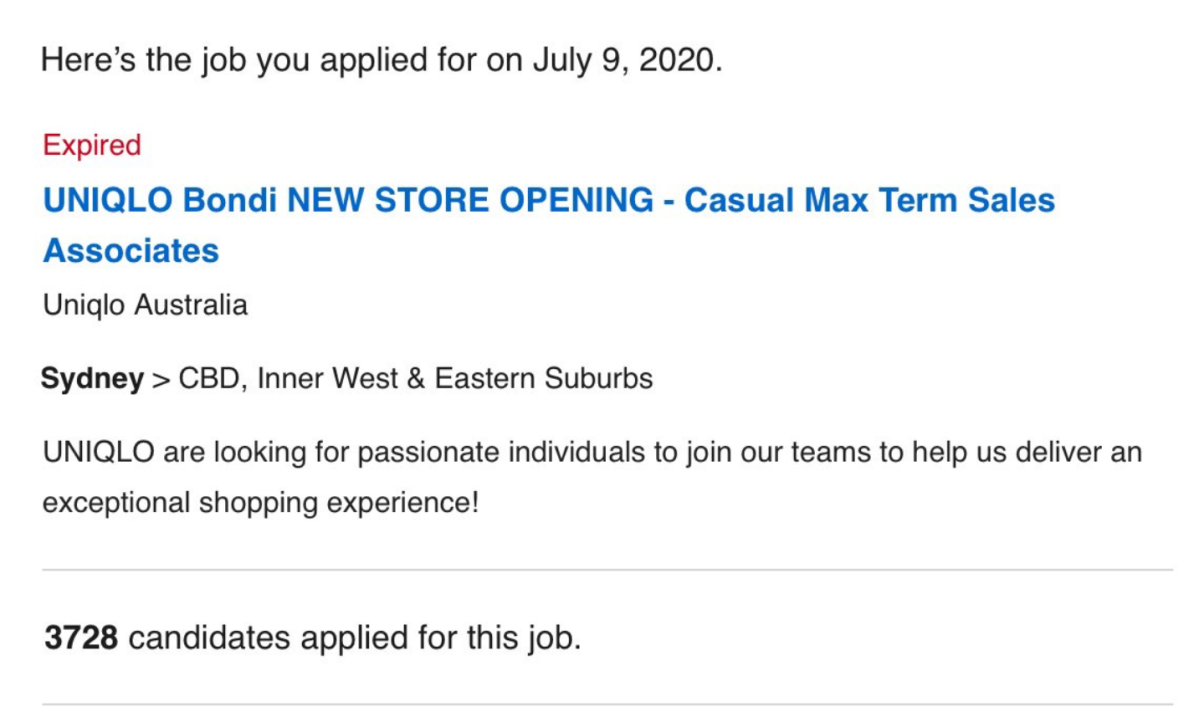Mutual obligation confusion over Centrelink payments
The return of Centrelink’s mutual obligations is causing confusion amid soaring unemployment rates, advocates say, with the Federal Government conceding job seekers will not face financial penalties if they do not meet all requirements.


Photo: Tony Lewis/InDaily
In June, the Federal Government announced Centrelink’s mutual obligations would recommence in three stages.
Mutual obligations are a range of measures job seekers are required to meet in order to receive their low-income payments.
Before the pandemic, job seekers who did not meet these requirements could be penalised and lose their financial support.
Stage one began on June 9 and required job seekers to attend at least one appointment with their employment service provider, while stage two came into effect on August 4.
The government has so far declined to provide a date for stage three.
Under stage two, the Department of Education, Skills and Employment website said people receiving JobSeeker payments needed to look for up to four jobs per month, undertake appointments with an employment services provider, and participate in training and a range of other activities.
However, a spokesperson for the department told InDaily job seekers were only “encouraged” to remain connected with their employment service providers.
They said “only those who do not accept a job offer without a valid reason will face financial penalty”.
In Victoria, even more leeway is given.
“Due to the COVID-19 restrictions in Victoria, no job seeker in that state will be subject to penalties or suspensions for any reason,” the spokesperson said.
The Australian Unemployed Workers’ Union said that despite the Department of Education, Skills and Employment clarifying its position to InDaily, the Federal Government had repeatedly failed to provide clear information about mutual obligations – including giving people confidence they wouldn’t be penalised if they didn’t engage with their job agency.
Union spokeswoman Kristin O’Connell said members were advised to not feel pressured by employment agencies which sought to push job seekers into unsuitable work, or engage with job agencies “that bully them, demean them or harass them”.
“Many people – who don’t feel safe or comfortable dealing with their job agencies – have been continuing to do so because they are intimidated by their job agencies,” she said. said.
“The reason this happens is that job agencies make money out of job seekers. The fact that its privatised industry means that government funds are being used … to prop up this industry.
“We know they’ve made an extraordinary profit from COVID, and if they don’t get job seekers on their books, they are not making that money.”
In April, progressive think tank Per Capita estimated the privately-run employment service providers would reap $210 million during the pandemic.
The estimate was based on 700,000 Australians becoming unemployed and signing up to the Jobactive program.
As of March, the coronavirus pandemic had forced roughly 600,000 Australians out of work – many of whom were forced onto the welfare support system to survive.
The Department of Social Services estimates there were 1.61 million Australians on Jobseeker and Youth Allowance payments as of June 30.
Job seeker Jez Heywood told InDaily despite being temporarily exempt from looking for work, he’d applied for positions in line with Centrelink’s mutual obligations requirements via Seek and received messages advising him he was among thousands of other applicants.
“There wasn’t anything with under 100 applicants. A lot of things were hovering 600 applicants and I had one over 1000 and one over 3000,” Heywood said.

One of the jobs Heywood applied for.
He said his experience highlighted the fact that job seekers were not choosing not to look for work, but rather there were too few jobs.
It followed an announcement by Prime Minister Scott Morrison last week that the effective unemployment rate was expected to jump past 13 per cent.
Want to comment?
Send us an email, making it clear which story you’re commenting on and including your full name (required for publication) and phone number (only for verification purposes). Please put “Reader views” in the subject.
We’ll publish the best comments in a regular “Reader Views” post. Your comments can be brief, or we can accept up to 350 words, or thereabouts.




